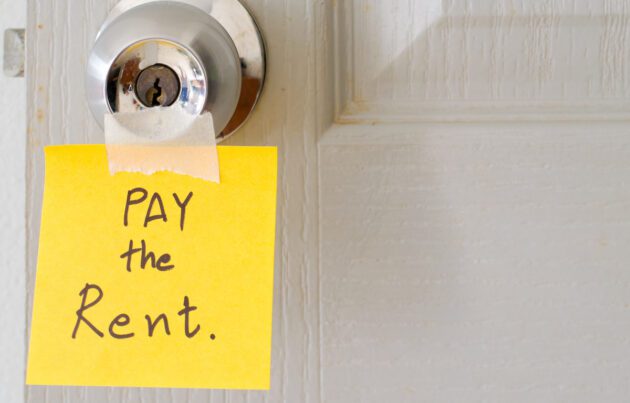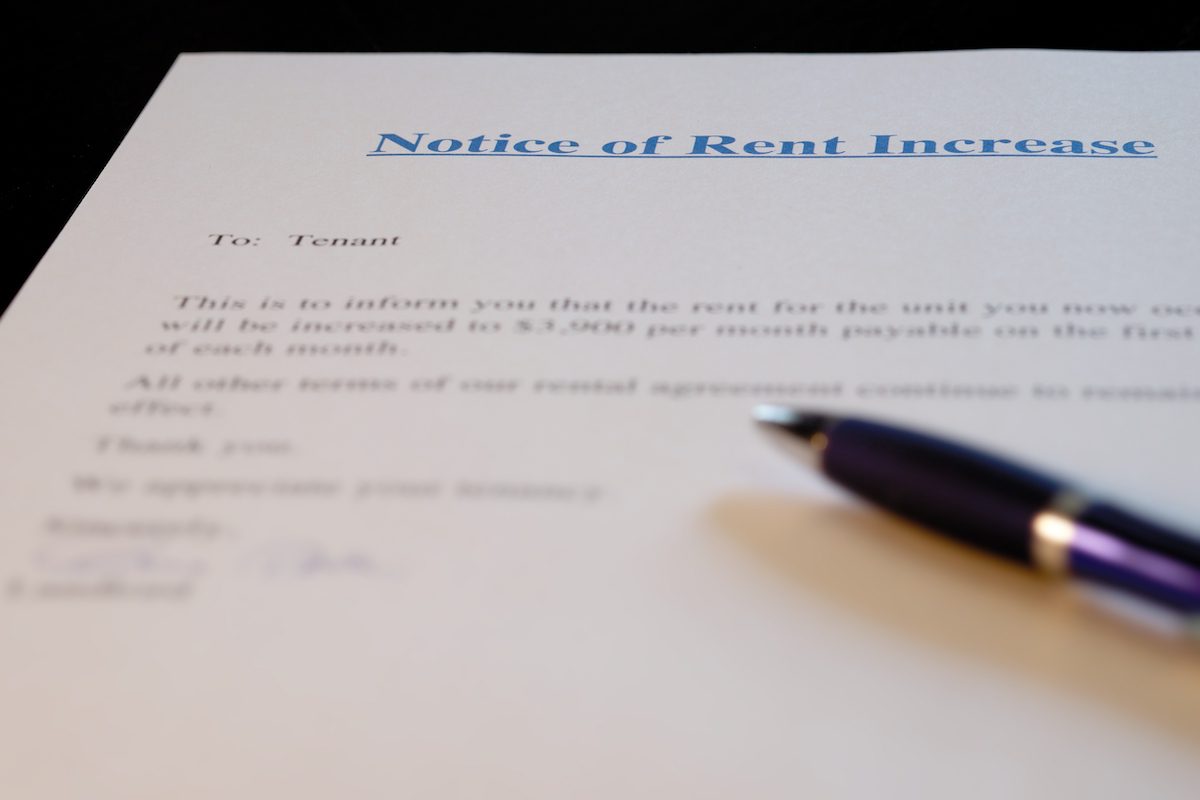How Much Should I Increase the Rent Each Year?

As a landlord, you've got the difficult job of keeping tenants in your property while still making a profit. Rent should cover the expenses of maintaining the house, but also give you a little something extra. That often means working in regular rent increases.
Raising the rent is perfectly normal, but there's a certain way to go about it so you don't lose tenants or struggle to rent your property when it's vacant.
So, how much should rent increase per year? While there's no exact formula, there's definitely plenty to consider that makes it easier to decide exactly what to do.
Why raise the rent at all?
General expenses associated with owning a property change from year to year. Based on property value, taxes and even the interest rates on your mortgage, what you owe each year isn't always the same.
To protect the investment of your rental property, one of the easiest things to do is raise the rent. The rental price for your property, while staying competitive within your market, should cover specific essentials, including:
- Property taxes
- Mortgage payments
- Management fees and insurance
- Maintenance and repairs
If you don't require tenants to set up their own utilities, that cost should also get rolled up into rent. Same for HOA fees.
You risk eating into your own profits if you don't raise the rent since you still have to cover any of these rising costs.
When to raise the rent
While the standard annual rent increase is somewhere between 3-5 percent of the total rent, there are more appropriate times to raise it than others. This isn't something you just do on the first day of each new year. Some tenants will be mid-lease at that point. Instead, the best time for an annual rent increase is to wait until the lease is up.
This could put you on an inconsistent cycle when it comes to raising rent, but if you only sign one-year leases with tenants, you'll know for certain that, at some point every year, you'll be able to raise the rent if you want. And, this annual rent increase, whenever it hits, will help you stay competitive within the housing market and ensure you're never undercharging.

How to tell your tenant about a rent increase
The best way to tell your tenant about a rent increase is through a letter. In fact, in most states, it's required. As their year-long lease comes to its end, you should already be preparing a letter asking them what their plans are. Are they going to move? Would they like to stay? Will they sign another full-year lease or go month-to-month?
As you're getting answers to these questions, you should also mention how much rent will increase for the following lease terms. Break it down by month so the increase is more manageable for the tenant. For example, if rent is $1,000 per month and you're raising it by three percent, inform the tenant monthly rent will now be $1,030. Thirty dollars is much easier to budget for than seeing the total increase over an entire year.
The letter detailing all this information should get sent to tenants well in advance of the day the lease expires. Most landlords require 30-days notice from tenants as to whether they're moving out or renewing, and you don't want to cut it too close to that deadline. Since your rent increase could impact their choice, you want to provide plenty of notice. Notifying them around 90 days in advance is ideal.
It's OK to explain why
If you have a good relationship with your tenants, and already know they're going to stay, it can feel awkward raising the rent. And, while it's ultimately your choice on whether to have an annual rent increase every year or not, you're doing nothing wrong.
To make it easier to ask tenants for more money, it's OK to explain why you're doing it. Let them know the percentage you're increasing rent (and it's OK to share that) is within the national standard of 3-5 percent. Also, let them know that you've raised the rent at this very same percentage over the last XX years, so you're being consistent.
Even mentioning that this rent increase is to ensure you stay competitive in your local market is OK to do. Owning a rental property is a business after all, and most tenants expect to see a slight rent increase year-over-year.
If your renter complains
If, even after you provide an appropriate explanation and ample advance notice about a rent increase, your tenant still complains, there are a few things you can do.
- Offer a lower increase the sooner they renew their lease. For example, if they renew within 60 days, rent will go up 2.5 percent, but if they wait until 30 days to renew, the increase will be three percent.
- Give tenants a non-cash incentive for renewing, such as a gift card for the closest grocery store or a popular restaurant.
- Educate tenants why a renewed lease, with a set term of the monthly rent to collect, is a better deal than waiting too long and shifting into a month-to-month lease. With a month-to-month, you can raise the rent any time as long as you give 30 days' notice.
Responding to any discontent with these additional arguments should help tenants understand why you're raising the rent and how reasonable you're being. If they still don't like it, they don't have to stay. But, make sure you throw out there how much more it will cost to move into a new place — pay first and last months' rent, security deposit, etc. vs. your slight increase.

Situations where you can't raise the rent
As easy as it is to raise the rent as a lease ends, you may find yourself thinking about upping rent at other points in time. Not all are OK, and you have to tread carefully when this happens.
- Local laws may set limits on rent increases, from how often you can raise the rent to how much. They may even specify the number of days notice you must provide. Most states also require the rent increase notification to come to the tenant in writing, so don't forget to send your letter.
- If the lease your tenant's sign states that the rent is on a fixed-term, such as a year, you can't raise the rent within that period. You must wait until the end of the lease term.
- When a tenant has gone to a month-to-month lease, you can technically raise the rent at any point. However, you must provide appropriate notice of the change, typically at least 30 days in advance.
- You also can't raise the rent as a retaliatory act. Rent increases are not a tool to force a tenant out simply because you don't like them. This itself is illegal, but you can also cross the line and end up in violation of the Fair Housing Act.
To stay safe when you raise the rent, check your local laws and try to only make this type of change at the conclusion of a leasing period.
Set the rent for what works for you
In the end, figuring out how much the rent increases per year on your property is up to you. Taking into account all your expenses, the rental housing market and your profit margin will help you decide.
From there, making a reasonable increase, and giving your tenant plenty of notice, should make for an easy transition. And, if for some reason it doesn't, you can always start at your new rent price when the next tenant moves into the house.
